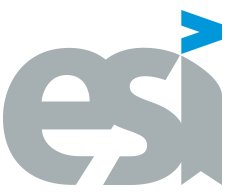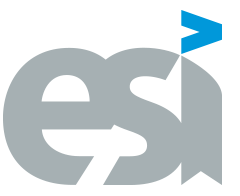Shortcuts

In the idea of continuous training of ICT professionals, UCLM offers the Master's Degree in Computer Engineering (MUii). After completing the Degree in Computer Engineering, each student has completed an intensification that has specialized in a specific domain. The MUii seeks to complement the student's training, so that he is able to join a team that requires both technological depth and breadth. This is an Official Master's Degree and therefore homologated in the European Higher Education Area (EHEA); In addition, it is possible to obtain scholarships and access doctoral programs.
This Master's is the ideal training complement for those students who, after taking an intensification in the Degree in Computer Engineering, wish to be trained in the main subjects of the rest of the intensifications in a specialized way (big data, internet of things, digital transformation, science data, virtual reality, etc…). Apart from delving into different areas of knowledge, the master's also introduces its students to managing professional teams and technological innovation.
Regardless of the specialization received by the student during the Degree, this master reconciles their knowledge with the rest of the intensifications, thus providing added value that will enable them to work on any type of project.
The Master in Computer Engineering covers a total of 16 skills organized into three modules: i) Direction and Management Module, ii) Computer Technologies Module and iii) Master's Thesis Module. The first module aims to provide the student with skills for leadership and management in companies and technology centers, at different levels; from project management to that of the company itself at a global level. In this way, the training of the undergraduate student is complemented, and they are provided with the necessary skills to occupy positions of greater responsibility. On the other hand, in the second module, a series of capacities linked to advanced and cutting-edge technologies that mark the development and progress of today's society are acquired. Some examples of these technologies are Big Data, Cloud Computing, Smart Cities, Supercomputing, Cyber-Physical Systems, Augmented Reality, Cybersecurity or Artificial Intelligence. Finally, in the third module, the student must carry out, present and defend a comprehensive Computer Engineering project of a professional nature in which part of the skills acquired during the Master are synthesized.
The University Master's Degree in Computer Engineering qualifies for the professional practice of Computer Engineer (Resolution of June 8, 2009, of the General Secretariat of Universities, published in BOE No. 187 of Tuesday, August 4, 2009).
According to the evolution of the data obtained in the latest job placement surveys, it is shown how Computer Engineering graduates are widely in demand. Specifically, 100% of those surveyed were working at the time of the survey, with 85% of them rating their short-term professional promotion expectations with 4 or more points (out of a maximum of 5). The average time needed to find the first job was 2,85 months. Regarding the type of company in which they found their first job, 85% were hired through a full-time temporary contract in a private company, with 93% assessing the adequacy between the job found and the training received.
On the other hand, according to data from the Center for Information and Employment Promotion (CIPE) of the UCLM, Computer Science graduates are the most demanded by employers in Castilla-La Mancha, being difficult to satisfy all the demands that arrive, because they are superior to the offer.
| Cookie | Duration | Description |
|---|---|---|
| cookielawinfo-checkbox-advertisement | 1 year | Set by the GDPR Cookie Consent plugin, this cookie is used to record the user consent for the cookies in the "Advertisement" category. |
| cookielawinfo checkbox analytics | 11 months | This cookie is set by GDPR Cookie Consent plugin. The cookie is used to store the user consent for the cookies in the category "Analytics". |
| cookielawinfo checkbox functional | 11 months | The cookie is set by GDPR cookie consent to record the user consent for the cookies in the category "Functional". |
| cookielawinfo-checkbox-Necessary | 11 months | This cookie is set by GDPR Cookie Consent plugin. The cookies are used to store the user consent for the cookies in the category "Necessary". |
| cookielawinfo-checkbox-fastrs | 11 months | This cookie is set by GDPR Cookie Consent plugin. The cookie is used to store the user consent for the cookies in the category "Other. |
| cookielawinfo checkbox performance | 11 months | This cookie is set by GDPR Cookie Consent plugin. The cookie is used to store the user consent for the cookies in the category "Performance". |
| CookieLawInfoConsent | 1 year | Records the default button state of the corresponding category & the status of CCPA. It works only in coordination with the primary cookie. |
| viewed_cookie_policy | 11 months | The cookie is set by the GDPR Cookie Consent plugin and is used to store whether or not the user has consented to the use of cookies. It does not store any personal data. |
| Cookie | Duration | Description |
|---|---|---|
| _ga | 2 years | The _ga cookie, installed by Google Analytics, calculates visitor, session and campaign data and also keeps track of site usage for the site's analytics report. The cookie stores information anonymously and assigns a randomly generated number to recognize unique visitors. |
| _ga_660H2MJ19C | 2 years | This cookie is installed by Google Analytics. |
| _gat_gtag_UA_199993715_1 | 1 minutes | Set by Google to distinguish users. |
| _gid | 1 day | Installed by Google Analytics, _gid cookie stores information on how visitors use a website, while also creating an analytics report of the website's performance. Some of the data that are collected include the number of visitors, their source, and the pages they visit anonymously. |
| CONSENT | 2 years | YouTube sets this cookie via embedded youtube videos and registers anonymous statistical data. |
| Cookie | Duration | Description |
|---|---|---|
| VISITOR_INFO1_LIVE | 5 months 27 days | A Cookie Set by YouTube to Measure Bandwidth That Determine Whether The User Gets The New Or Old Player Interface. |
| YSC | Session | YSC Cookie is set by youtube and is used to track the views of embedded Videos on YouTube Pages. |
| yt remote connected devices | never | YouTube Sets This Cookie To Store The Video Preferences of The User Using Embedded YouTube Video. |
| yt remote device id | never | YouTube Sets This Cookie To Store The Video Preferences of The User Using Embedded YouTube Video. |



